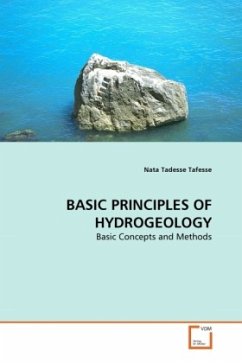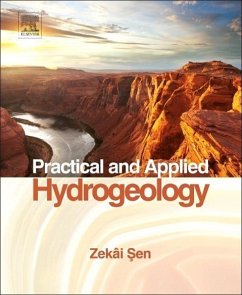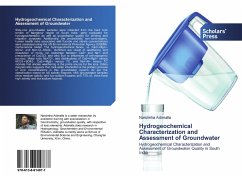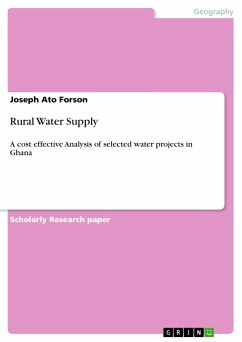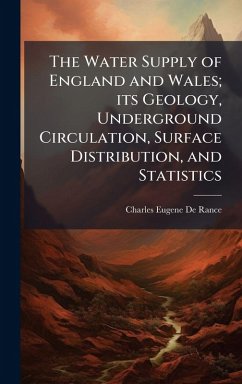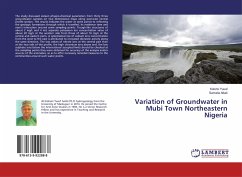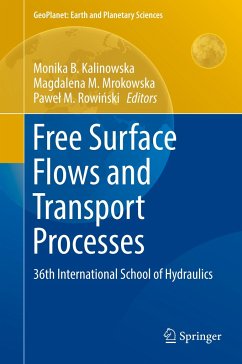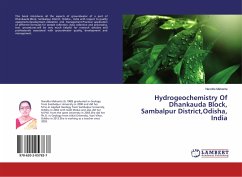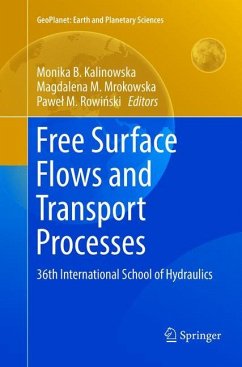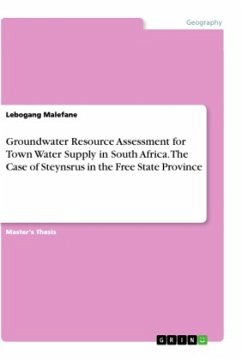
Groundwater Resource Assessment for Town Water Supply in South Africa. The Case of Steynsrus in the Free State Province

PAYBACK Punkte
0 °P sammeln!
Master's Thesis from the year 2016 in the subject Geography / Earth Science - Geology, Mineralogy, Soil Science, grade: 3.4, University of the Free State (Institute for Groundwater Studies), course: Geohydrological Masters Programme, language: English, abstract: Groundwater resource assessment aims to obtain fundamental data and information needed to describe the hydraulic and chemical parameters in order to estimate the available groundwater resource which is suitable for drinking. This study was undertaken with the purpose of determining and estimating the groundwater occurrence, groundwater...
Master's Thesis from the year 2016 in the subject Geography / Earth Science - Geology, Mineralogy, Soil Science, grade: 3.4, University of the Free State (Institute for Groundwater Studies), course: Geohydrological Masters Programme, language: English, abstract: Groundwater resource assessment aims to obtain fundamental data and information needed to describe the hydraulic and chemical parameters in order to estimate the available groundwater resource which is suitable for drinking. This study was undertaken with the purpose of determining and estimating the groundwater occurrence, groundwater flow parameters, groundwater quality and storage in typical Karoo Main Basin aquifers such as in the Steynsrus study area in South Africa. The field investigations were designed to define and determine the sustainable yields and the properties of the aquifers and the exploitable volumes. The research places emphasis on the appropriate tools and their applications in order to understand the local aquifers so as to optimise the groundwater exploration for town water use and to determine the future water use. The geophysical surveying methods, particularly the magnetic method, were utilised to investigate and determine borehole drilling targets, and to locate groundwater potential structures, which are often associated with high borehole yields. The quality of the magnetic data utilised for drilling by the external consultant was critically evaluated and was found to be 'bad data'. Percussion drilling played an important role in providing geological subsurface information; in particular locations of fractures which are often associated with favourable groundwater flow were identified. Seventeen (17) boreholes were drilled in the whole project, seven (7) of the boreholes were sited by magnetometer survey and interpretation, and ten (10) of the drilled boreholes were sited by geological mapping and map interpretation. Twelve of the drilled boreholes were declared 'unsuccessful' due to yielding a blow yield below 1.00 L/s; therefore these boreholes were not considered for aquifer pump testing. Blow yields of five (5) of the newly drilled boreholes were between 1.5 and 24 L/s. Based on these findings, the aquifers in the study were concluded to be a fractured system of alternating layers of sandstone and shale formations, characterised by the favourable groundwater flow characteristics at the dolerite fractures, and in some cases bedding plane fractures of sandstone formations. The study demonstrates the value in the methods and concepts applied in geohydrological studies to understand the local aquifer properties and in order to estimate the sustainable yields and the groundwater balance.




